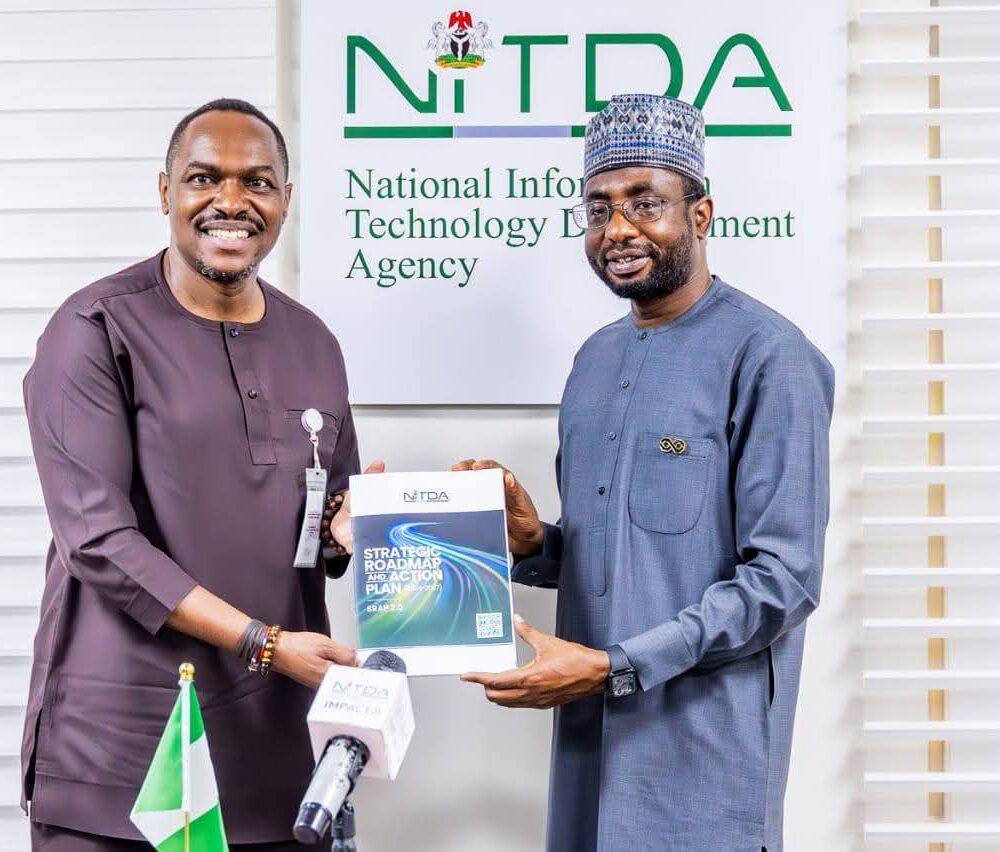BEING A KEYNOTE ADDRESS
BY ISA ALI IBRAHIM (PANTAMI), PhD, FNCS, FBCS, FIIM,
HONOURABLE MINISTER OF COMMUNICATIONS AND DIGITAL ECONOMY, FEDERAL REPUBLIC OF NIGERIA
AT THE NESG DIGITAL ECONOMY POLICY COMMISSION WEBINAR
ON THURSDAY, 28TH MAY 2020
All Protocols duly observed.
May Peace, Mercy and Blessings be upon you!
I am very delighted to deliver this Keynote Address as we assess the impact of COVID-19 on the Digital Economy and identify strategies that will enable us develop our Digital Economy despite the challenges of the pandemic. I would like to thank leadership of the Nigerian Economic Summit Group (NESG) for organising this important event and for your kind invitation to me.
COVID-19 needs no introduction; it has radically transformed the way we do everything. Our vocabulary has changed, social distancing, palliative and stay safe are some of the terms that become part of our everyday words. Our fashion sense has changed, with sanitizers and masks now becoming essential accessories to our clothing. More importantly, it has changed how we work, with work-at-home becoming the default mode and video conferencing software becoming the required application on most computing devices.
COVID-19 and the Digital Economy
The impact of COVID-19 is being felt in most sectors of the economy. However, for the purpose of today’s interaction we will focus the discussion on its effect on our Digital Economy.
The digital economy has been defined in many ways by various individuals and institutions. The European Commission defines the digital economy as an economy that “encompasses businesses that sell goods and services via the internet, and digital platforms that connect spare capacity and demand”.
The World Economic Forum and the Group of Twenty (G20) define the digital economy as “a broad range of economic activities comprising all jobs in the digital sector as well as digital occupations in non-digital sectors”.
In the National Digital Economy Policy and Strategy (NDEPS), we refer to digital economy as any aspect of the economy that is based on or driven by digital technologies. It has been widely accepted that a digital economy is the single most important driver of innovation, competitiveness and growth for any economy.
The National Digital Economy Policy and Strategy (NDEPS) for a Digital Nigeria was unveiled and launched by President Muhammadu Buhari, GCFR, on the 28th of November, 2019.
The NDEPS is based on the following 8 pillars:
1. Developmental Regulation;
2. Digital Literacy and Skills;
3. Solid Infrastructure;
4. Service Infrastructure;
5. Digital Services Development and Promotion;
6. Soft Infrastructure;
7. Digital Society and Emerging Technologies; and
8. Indigenous Content Development and Adoption.
The digital economy is not independent of the traditional economy. Rather, they are interdependent and a focus on growing the National Digital Economy will also improve the nation’s traditional economy. It will enable us get a slice of the Global Digital Economy, which Oxford Economics values at $11.5 trillion dollars or approximately 16% of the Global Economy. This value is expected to grow significantly over the coming years.
The World Economic Forum predicts that over 60% of global GDP will be digitized by 2022 and that over the next decade, digital platforms will be used to create close to 70% of new value. Furthermore, according to a Report by Ericsson titled “How Important Are Mobile Broadband Networks for Global Economic Development”, 10% increase in mobile broadband penetration results in approximately 0.6% to 2.8% rise in gross domestic product (GDP). Our Pillar #3 on Solid Infrastructure will address this aspect and the recently inaugurated Presidential Committee on drafting a new National Broadband Plan (2020-2025) has almost completed its assignment.
Most nations are prioritizing the need to develop their digital economies because they realize the multiplier effects that this can have on all other sectors of the economy. For instance, the digital economy in the United States contributed 6.9% to the nation’s GDP in 2017. It also contributed 5.1million jobs in that year. The 2019 Digital Trade and U.S. Trade Policy also noted that almost two-thirds of all the jobs created in the United States since 2010 required medium or advanced levels of digital skills. In Nigeria, we are keen to develop a digital economy that will have a great impact on every sector of Nigeria’s economy.
COVID-19 has had an impact on the digital economy in a number of ways. A few of them include:
1. Education
2. Work Life
3. Commerce and Cybersecurity
4. Healthcare
5. Connectivity
The closure of educational institutions in most states across the country has compelled educators to adopt a digital approach for the delivery of their lectures.
According to a May 2020 Report by UNESCO, 70% of enrolled student, or about 1.2billion students in 150 country had their education disrupted. Digital technologies have been used to mitigate the adverse effects on this closure.
The education challenge was envisaged and addressed in NDEPS Pillar (Digital Literacy and Skills) and Pillar 7 (Digital Society and Emerging Technologies). We have enabled about 13,000 Nigerians to get access to training on digital technologies and we are encouraging the private sector to promote e-learning based capacity building.
The work-at-home policy that became popular as a result of the pandemic has led to the use of several remote working platforms, such as the one that this event is running on. According to a April 2020 COVID-19 Bulletin by Gartner, COVID-19 Bulletin, 88% of organizations have encouraged or required their employees to work from home and 91% of teams in Asia Pacific have implemented ‘work from home’ arrangements since the outbreak.
There is a similar trend of the rapid adoption of such arrangements by Nigerian institutions, where access to technology and relevant infrastructure permit. Incidentally, a recent by OWLLabs in the United States indicated that 31% of respondents credited COVID-19 as being the catalyst for remote work. NDEPS addresses this in Pillars 4 (Service Infrastructure) and Pillar 5 (Digital Services Development and Promotion).
E-commerce has become the default mode of shopping and digital payments are fast becoming the payment method of choice for most individuals, shops and institutions. Unfortunately cybercriminals have increased the vulnerability of these systems. We addressed this is Pillar 6 (Soft Infrastructure) of the NDEPS and have increased surveillance and the advisories we provide.
COVID-19 is primarily in the domain of healthcare but it has overwhelmed the healthcare system to such an extent that non-COVID related illnesses no longer enjoy the level of care and attention that they used to enjoy prior to COVID. Telemedicine is now being used to address many of such illnesses. Again, we addressed this in NDEPS pillars 4 and 5.
All these solutions are only possible where adequate connectivity exists. His Excellency, President Muhammadu Buhari, GCFR, launched the National Broadband Plan 2020-2025 on the 19th of March, 2020. The Plan outlines a systematic approach to ensure that 90% of the Nigerian population has access to broadband within the lifetime of the Plan.
It would be recalled that following my meeting with the Executive Governors, they had resolved to adopt the 2013 resolutions reached by the National Economic Council (NEC) which agreed on a maximum Right of Way charge of N145.00 per linear meter of fibre. I am happy to inform you that many Governors are complying with this landmark action, some have even waived the fee altogether. It will propel broadband penetration & inclusive digital economy for job creation & growth and mitigate the effects of COVID-19.
Conclusion and a call to partnership
As the nation continues its fight against the COVID-19 pandemic, the Federal Ministry of Communications and Digital Economy has a team that is working on the development and implementation of policies that will support Nigeria’s Digital Economy.
In particular we are implementing the National Digital Economy Policy and Strategy, as well as the National Broadband Plan. Issues like Digital First and a support for a Bi-modal procurement process to accommodate Tech startups are also included in these policies.
We certainly cannot do it alone and we seek partnerships with the organised private sector to do this. COVID-19 has triggered the rapid adoption of digital platforms and we need to ensure that we maintain the momentum in order to rapidly develop our digital economy.
I wish you all a very successful conference.




